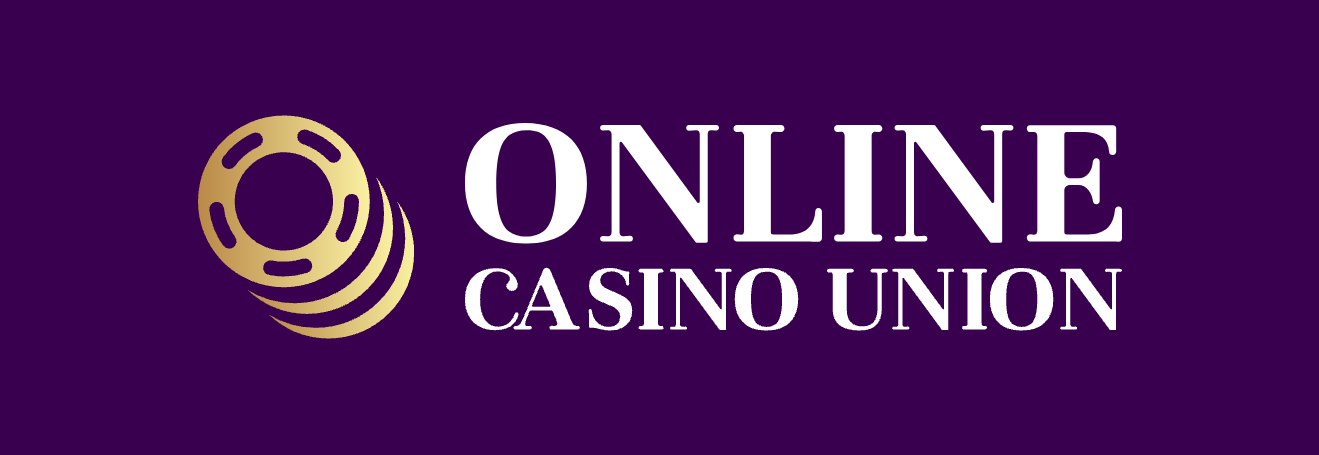Licensing authorities play a crucial role in regulating online casinos, ensuring fair play, protecting player interests, and preventing illegal activities.
These regulatory bodies implement several key measures:
-
Financial oversight: Authorities enforce strict financial regulations to ensure casinos maintain adequate reserves and handle player funds responsibly.
-
Responsible gaming features: Casinos are required to implement tools such as self-exclusion options, deposit limits, and time-out periods to promote responsible gambling.
-
Dispute resolution: Licensing bodies provide channels for addressing player concerns and resolving disputes between players and casinos.
-
Vetting processes: Authorities conduct thorough background checks on casino operators, examining their financial stability, operational integrity, and compliance history.
-
Game fairness: Regulators ensure that casino games are tested for fairness and randomness by independent third-party auditors.
-
Anti-money laundering measures: Casinos are required to implement strict protocols to prevent money laundering and other financial crimes.
-
Data protection: Licensing authorities mandate robust security measures to protect player information and financial data.
-
Advertising standards: Regulators enforce guidelines on responsible marketing practices to prevent misleading or predatory advertising.
-
Regular audits: Casinos undergo periodic audits to ensure ongoing compliance with regulatory standards.
-
Sanctions and penalties: Authorities have the power to impose fines, suspend licenses, or revoke operating permissions for non-compliant casinos.
These measures collectively contribute to maintaining the integrity of the online gambling industry and fostering a safer environment for players.
Importance of Licensing Authorities
Licensing authorities serve a critical function in regulating online casinos. A valid license indicates that a casino has met specific regulatory standards and complies with established guidelines.
These licenses aren’t merely formalities but represent a commitment to maintaining operational integrity and player protection.
The primary purpose of licensing authorities is to ensure fair play, protect players’ interests, and maintain the overall integrity of the online gambling industry.
They achieve this through regular audits, monitoring of casino operations, and enforcement of compliance with established regulations.
Licensed casinos are subject to rigorous scrutiny, including:
- Verification of game fairness and randomness
- Implementation of responsible gambling measures
- Protection of player funds and personal information
- Adherence to anti-money laundering protocols
The presence of a valid license provides players with a degree of assurance regarding the legitimacy and reliability of an online casino.
It also offers a mechanism for dispute resolution, as players can appeal to the licensing authority in case of unresolved issues with the casino.
Furthermore, licensing authorities contribute to the overall credibility of the online gambling industry.
By setting and enforcing standards, they help create a more trustworthy environment for players and promote responsible gambling practices.
It is important to note that the effectiveness of licensing authorities can vary depending on the jurisdiction and the specific regulatory body.
Players should research the reputation and track record of both the casino and its licensing authority before engaging in online gambling activities.
Key Responsibilities
Licensing authorities for online casinos have several key responsibilities that are essential for maintaining industry standards and protecting players.
These responsibilities include:
-
Regulatory enforcement: Authorities ensure online casinos operate within legal frameworks, setting and enforcing regulations to prevent illegal activities such as money laundering and fraud.
-
Financial oversight: They scrutinize the financial stability of casino operators to protect players’ funds and ensure prompt payout of winnings.
-
Fair play standards: Licensing bodies require the use of certified Random Number Generators (RNGs) and conduct regular audits to maintain game integrity.
-
Player protection measures: Authorities mandate the implementation of responsible gaming features, including self-exclusion options and deposit/wager limits.
-
Dispute resolution: They provide channels for addressing player concerns and resolving disputes between players and casinos.
-
Information dissemination: Many licensing authorities publish lists of unlicensed or non-compliant casinos to help players make informed decisions.
These responsibilities collectively contribute to maintaining industry standards and safeguarding the online gaming environment.
Licensing Process
The online casino licensing process involves several key steps and considerations.
Prospective operators must first select an appropriate jurisdiction, as each has distinct regulations, fees, and reputational implications. This choice requires thorough research and evaluation.
Documentation preparation follows jurisdiction selection. Common requirements include identity verification, financial stability evidence, and a comprehensive business plan detailing the proposed casino operations.
These documents form the foundation of the application.
Submission of the application to the licensing authority initiates a rigorous vetting process.
Applicants undergo extensive background checks, examining both personal and professional histories. Transparency and honesty are critical during this phase to demonstrate integrity and reliability.
A review period ensues after submission, during which the authority may request additional information or clarification.
Prompt responses to such inquiries can help mitigate potential delays in the process.
Upon approval, applicants must pay the stipulated licensing fee, which may include an annual renewal component.
Obtaining the license marks the beginning of ongoing compliance responsibilities.
Adherence to regulatory requirements is essential for maintaining the license and ensuring legal operation.
The licensing process, while complex, is navigable with proper preparation and understanding of the regulatory landscape.
It serves as a crucial step in establishing a legitimate and compliant online casino operation.
Ensuring Fair Play
Fair play in online casinos is essential for maintaining player trust and industry integrity.
Online casinos are required to implement measures that ensure game fairness and transparency. Licensing authorities play a significant role in enforcing these standards through regulations and audits.
Key aspects of fair play in online casinos include:
- Random Number Generators (RNGs): These systems are used to ensure genuinely random outcomes in games such as slots, poker, and roulette.
Independent laboratories regularly test RNGs to verify their integrity.
- Transparency requirements: Online casinos must publish payout percentages and provide clear access to terms and conditions.
This information allows players to make informed decisions about their gaming activities.
-
Software monitoring: Licensing authorities oversee the software used by online casinos to ensure it’s up-to-date and free of bugs that could potentially disadvantage players.
-
Regular audits: Licensing bodies conduct periodic audits to verify compliance with fair play standards and regulations.
These measures collectively contribute to creating a level playing field for all participants in online casino gaming.
By adhering to these standards, online casinos can demonstrate their commitment to fairness and build trust with their player base.
It is important to note that while these measures significantly reduce the risk of unfair practices, players should always exercise caution and gamble responsibly.
Researching the reputation and licensing status of an online casino before engaging in play is advisable.
Protecting Players
Online casinos and their licensing authorities bear significant responsibility for player protection. This responsibility encompasses several key areas:
Data Security: Licensing authorities mandate the implementation of robust data protection measures. This includes the use of encryption technologies to safeguard personal information and financial data from unauthorized access.
Responsible Gambling Measures: To mitigate the risk of gambling addiction, licensing bodies require casinos to offer self-exclusion programs and deposit limit options. These tools allow players to set daily, weekly, or monthly spending limits or take breaks from gambling activities.
Support Resources: Reputable licensing authorities stipulate that online casinos provide access to support organizations specializing in problem gambling. This ensures that players can easily find assistance if needed.
Transparency: Clear communication of terms and conditions is a critical requirement. Licensing authorities ensure that casinos present their rules and policies in a comprehensible manner, enabling players to make informed decisions and reducing the likelihood of misunderstandings.
These measures collectively aim to create a safer gambling environment and protect players’ interests. However, their effectiveness can vary depending on the specific licensing authority and the casino’s compliance with regulations. Regular audits and enforcement actions by licensing bodies are necessary to maintain these standards consistently across the online gambling industry.
Preventing Fraud
Fraud prevention is a crucial component in maintaining the integrity of online casinos.
Online gambling platforms are expected to provide a secure environment for personal and financial information. Licensing authorities play a significant role in ensuring that online casinos implement robust measures to prevent fraud.
These regulatory bodies require casinos to utilize advanced security protocols, including encryption and two-factor authentication.
Regular audits are mandated to detect potential fraudulent activities. These measures contribute to a more secure gaming experience for players, reducing the risks associated with identity theft and financial loss.
Licensing authorities also monitor casinos for indications of money laundering or financial misconduct. By enforcing strict regulations, they aim to ensure transparent handling of deposits and withdrawals.
This level of oversight contributes to maintaining trust in the online gambling industry.
Additionally, licensing bodies typically provide channels for users to report suspicious activities.
These reports are investigated promptly, allowing for swift action against fraudulent operators.
This approach helps maintain fairness and security in the online casino ecosystem.
It is important to note that while these measures significantly reduce the risk of fraud, no system is entirely foolproof.
Players should remain vigilant and follow best practices for online security when engaging in online gambling activities.
Global Licensing Bodies
Global licensing bodies serve a critical function in regulating online casinos and ensuring their legitimacy. These organizations establish operational standards and legal requirements for online gambling platforms.
Key licensing authorities in the industry include the Malta Gaming Authority (MGA), the United Kingdom Gambling Commission (UKGC), and the Gibraltar Regulatory Authority (GRA).
The MGA is known for its comprehensive regulatory framework and thorough vetting procedures. Casinos holding an MGA license are subject to strict oversight and compliance measures.
The UKGC maintains rigorous standards focused on player protection and fair gaming practices. Online casinos licensed by the UKGC are required to adhere to stringent operational guidelines.
The GRA is particularly relevant for casinos targeting European markets. This regulatory body emphasizes compliance with international laws and implements robust anti-money laundering protocols.
Each of these licensing authorities contributes to the overall integrity and credibility of the online gambling industry.
Understanding the role and reputation of these licensing bodies can assist consumers in making informed decisions when selecting online casinos. Verifying a casino’s licensing status with reputable authorities is an important step in ensuring a secure and regulated gambling environment.
Conclusion
You’ve seen how crucial licensing authorities are in regulating online casinos. They ensure fair play, protect players’ interests, and prevent fraud. By overseeing casinos through rigorous vetting and audits, they maintain industry integrity and safeguard your funds. Whether you’re a casual player or a high roller, you can trust that these authorities are working tirelessly to create a safe and fair online gambling environment for everyone. So, always choose licensed casinos for peace of mind.

